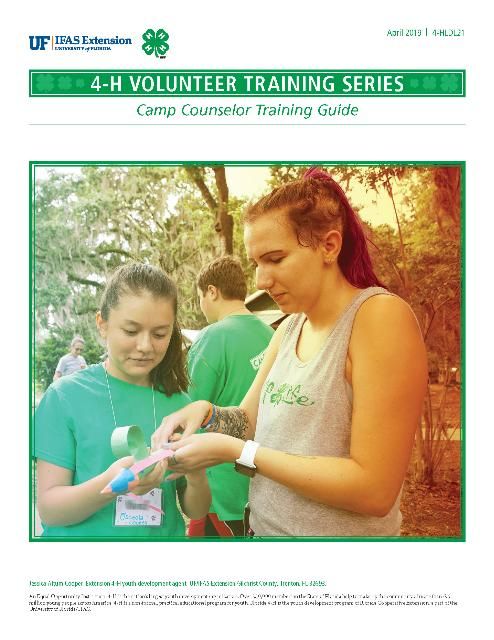4-H Residential Camp Counselor Training empowers youth ages 14–18 to be positive role models, leaders, and mentors to their campers. This 38-page guide, available here as a PDF, provides preparation and training modules to help youth reach their full potential as the next generation of community leaders.

Credit: UF/IFAS
Program Values
The 4-H Residential Camp Counselor Training Program values include:
- Embracing the mission and values of the overall Florida 4-H program
- Adhering to research-based, age-appropriate training modules
- Partnering youth and adults to work together to provide the best camp experience possible
- Creating a high-quality experiential learning environment that promotes workforce preparation and life-skill development in participants
Program Learning Principles
- To develop mastery, counselor trainees must acquire component skills, practice integrating them, and know when to apply what they have learned.
- Goal-directed practice, coupled with targeted feedback, enhances the quality of participants' learning.
- Students' current level of development interacts with the social, emotional, and intellectual climate of the course to impact learning.
- Develop the individual, not just their skills and knowledge.
- Training promotes understanding of diversity and mutual respect among all participants.
- Counselor training provides youth with a strong voice in planning, implementing, and evaluating camp experiences with guidance from adults.
- Learning is increased by the variety of instructional techniques.